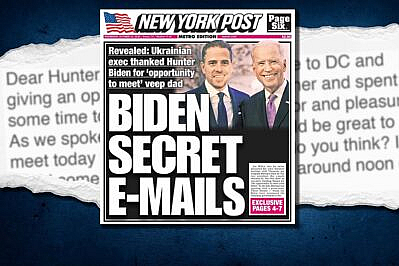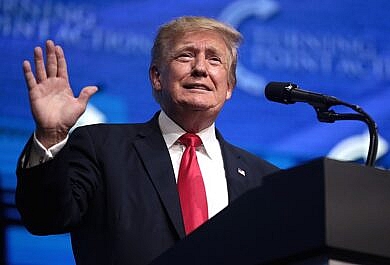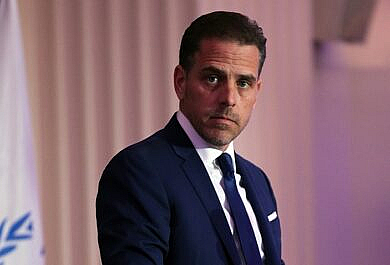The New York Post published an exposé on Hunter Biden’s previously unreported communications with a Ukrainian businessman. Social media companies worked to limit the story’s reach.
Summary
The New York Post published a bombshell report that allegedly reveals efforts by Joe Biden’s scandal-plagued son Hunter Biden to leverage his relationship to the then-Vice President with a Ukrainian businessman, who also served as an advisor to Burisma, the Ukrainian energy company on whose board the younger Biden served.
- Emails allege that Hunter Biden was asked to “use your influence” by the Ukrainian national to end political and law enforcement actions against Burisma. The Washington Times and New York Post made a connection between that request and the firing of a prosecutor in Ukraine in the months after the alleged meeting.
- The accusations starkly contradict assertions by Vice President Biden that his son’s business dealings had anything to do with gaining access to him.
- Information was unearthed by a computer repair shop in Delaware, eventually turned over to Rudy Giuliani, who then provided the New York Post with the cache of information. The Senate Homeland Security committee is investigating the emails obtained from the computer to authenticate their provenance.
- The coverage of the emails has shifted drastically since the revelations were published. Shortly after the NYP story went public, Facebook announced it was limiting the story, saying it needed to go through their independent fact checkers.
- Twitter took similar measures, citing their “Hacked Materials Policy”, including that the story contained private contact information such as unredacted email addresses.
- The social media giants’ actions have sparked outrage and accusations of censorship and bias. The move also received praise from “disinformation researchers.” Twitter CEO Jack Dorsey later admitted the company had not handled the matter as best as it could.
- The New York Post followed up yesterday’s story on Biden-Ukraine emails with a report Hunter Biden pursued financial deals with a Chinese energy company. The report also detailed the proposed creation of a holding company with the chairman of Chinese energy firm CEFC, the creation of which would be “so much more interesting to me [Hunter Biden] and my family.”
![]()
- The Biden campaign blasted the report, noting multiple investigations concluding the former Vice President did nothing wrong, Politico compared the document disclosure to the 2016 hacking of Democratic officials’ emails by Russia, citing “few damaging revelations.”
- The Daily Beast focused on the owner of the Delaware computer repair shop, noting he “appeared nervous throughout” an interview with several outlets, highlighting inconsistencies with his recollection of the timeline of events, as well as his mentioning of conspiracy theories.
- The New York Times casts doubt on the authenticity and origin of the information provided to the New York Post, suggesting it is part of a reported hacking of Burisma in January 2020.
- MSNBC.com editor Hayes Brown described yesterday’s reports as another failed attempt by former Mayor Rudy Giuliani, a lawyer and close confidant of President Trump, to create a “smoking gun” connection between the Biden family and Ukrainian corruption.
![]()
- New York Post’s Editorial Board is noting the couching of words in the Biden camp’s response to the article, saying neither Joe nor Hunter Biden are specifically denying the allegations.
- President Trump weighed in, condemning Facebook and Twitter for “taking down” the NY Post story.
- Sohrab Amari, the NY Post’s opinion editor wrote in a separate opinion piece comparing efforts by Facebook and Twitter limiting the spread of their story to totalitarianism. Amari noted the Post’s sourcing and supporting evidence and contrasted it to multiple unreliably sourced stories critical of the Trump Administration by other news outlets. None of those stories were ever fact-checked or limited by social media companies.
- Tucker Carlson called it “mass censorship”, comparing the actions by Facebook and Twitter to the Communist Chinese government.
- Reason.com’s Robby Soave approached it from a different angle. Soave criticized the backlash faced by non-Post reporters sharing the article, even while doubting the reliability of the story. He also discusses the double standard created when tech companies deem themselves the arbiter of “legitimate journalism.”
- The editors of National Review also took Facebook and Twitter to task for initiating a “media blackout” on the story. Similar to Reason’s Soave, National Review said it is not the responsibility of a “neutral platform” to “decide what news consumers can and can’t handle.”
© Dallas Gerber, 2020






